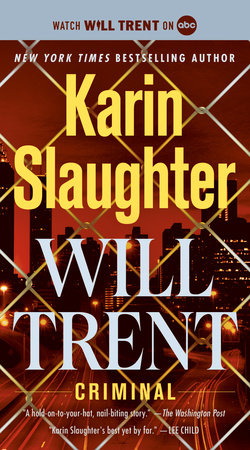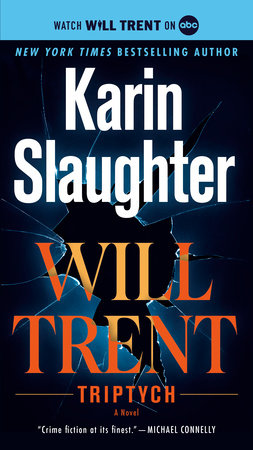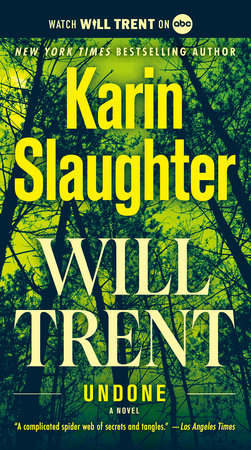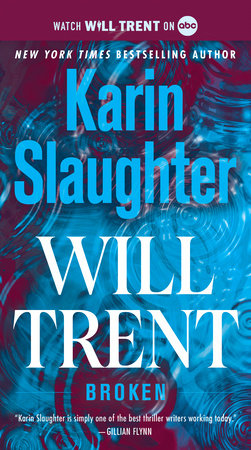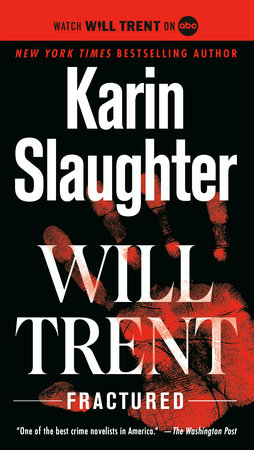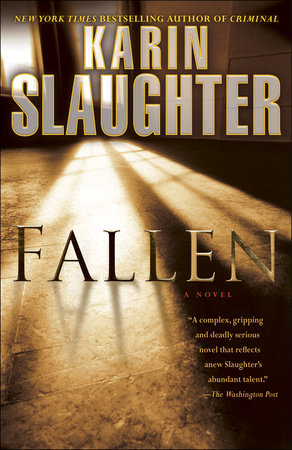Excerpt
Criminal
August 15, 1974
LUCY BENNETT
A cinnamon brown Oldsmobile Cutlass crawled up Edgewood Avenue, the windows lowered, the driver hunched down in his seat. The lights from the console showed narrow, beady eyes tracing along the line of girls standing under the street sign. Jane. Mary. Lydia. The car stopped. Predictably, the man tilted up his chin toward Kitty. She trotted over, adjusting her miniskirt as she navigated her spiked heels across the uneven asphalt. Two weeks ago, when Juice had first brought Kitty onto the corner, she’d told the other girls she was sixteen, which probably meant fifteen, though she looked no older than twelve.
They had all hated her on sight.
Kitty leaned down into the open window of the car. Her stiff vinyl skirt tipped up like the bottom of a bell. She always got picked first, which was becoming a problem that everyone but Juice could see. Kitty got special favors. She could talk men into doing anything. The girl was fresh, childlike, though like all of them, she carried a kitchen knife in her purse and knew how to use it. Nobody wanted to do what they were doing, but to have another girl—a newer girl—picked over them hurt just as much as if they were all standing on the sidelines at the debutante ball.
Inside the Oldsmobile, the transaction was quickly negotiated, no haggling because what was on offer was still worth the price. Kitty made the signal to Juice, waited for his nod, then got into the car. The muffler chugged exhaust as the Olds made a wide turn onto a narrow side street. The car shook once as the gear was shoved into park. The driver’s hand flew up, clamped around the back of Kitty’s head, and she disappeared.
Lucy Bennett turned away, looking up the dark, soulless avenue. No headlights coming. No traffic. No business. Atlanta wasn’t a nighttime town. The last person to leave the Equitable building usually turned off the lights, but Lucy could see the bulbs from the Flatiron glowing clear across Central City Park. If she squinted hard enough, she could find the familiar green of the C&S sign that anchored the business district. The New South. Progress through commerce. The City Too Busy to Hate.
If there were men out walking these streets tonight, it was with no amount of good on their minds.
Jane lit a smoke, then tucked the pack back into her purse. She wasn’t the kind to share, but she was certainly the kind to take. Her eyes met Lucy’s. The dead in them was hard to look at. Jane must’ve felt the same. She quickly glanced away.
Lucy shivered, even though it was the middle of August, heat wafting off the pavement like smoke from a fire. Her feet were sore. Her back ached. Her head was pounding like a metronome. Her gut felt like she’d swallowed a truckload of concrete. Cotton filled her mouth. Her hands felt the constant prick of pins and needles. A clump of her blonde hair had come out in the sink this morning. She had turned nineteen two days ago and already she was an old woman.
In the side street, the brown Olds shook again. Kitty’s head came up. She wiped her mouth as she got out of the car. No dawdling. No giving the john time to reconsider his purchase. The car drove away before she could shut the door, and Kitty teetered for a moment on the high heels, looking lost, afraid, and then angry. They were all angry. Fury was their refuge, their comfort, the only thing that they could truly call their own.
Lucy watched Kitty pick her way back toward the corner. She gave Juice the cash, trying to keep her forward momentum, but he caught her arm to make her stop. Kitty spat on the sidewalk, trying to look like she wasn’t terrified as Juice unfolded the wad of cash, counted off each bill. Kitty stood there, waiting. They all waited.
Finally, Juice lifted his chin. The money was good. Kitty took her place back in the line. She didn’t look at any of the other girls. She just stared blankly into the street, waiting for the next car to roll up, waiting for the next man who would either give her a nod or pass her by. It’d taken two days, tops, for her eyes to develop the same dead look as the rest of the girls. What was going through her mind? Probably the same as Lucy, that familiar chant that rocked her to sleep every night: When-will-this-be-over? When-will-this-be-over? When-will-this-be-over?
Lucy had been fifteen once. From this distance, she could barely remember that girl. Passing notes in class. Giggling about boys. Rushing home from school every day to watch her soap. Dancing in her room to the Jackson Five with her best friend, Jill Henderson. Lucy was fifteen years old, and then life had opened up like a chasm, and little Lucy had plummeted down, down into the unrelenting darkness.
She had started taking speed to lose weight. Just pills at first. Benzedrine, which her friend Jill had found in her mother’s medicine cabinet. They took them sparingly, cautiously, until the feds had gone crazy and banned the pills. The medicine cabinet was empty one day, and the next—or so it seemed—Lucy’s weight ballooned back up to well over one hundred fifty pounds. She was the only overweight kid in school save for Fat George, the boy who picked his nose and sat by himself at the lunch table. Lucy hated him the same way he hated her, the same way she hated her own reflection in the mirror.
It was Jill’s mother who taught Lucy how to shoot up. Mrs. Henderson wasn’t stupid; she had noticed the missing pills, been pleased to see Lucy finally doing something to get rid of her baby fat. The woman availed herself of the drug for the same reason. She was a nurse at Clayton General Hospital. She walked out of the emergency room with glass vials of Methedrine chattering like teeth in the pocket of her white uniform. Injectable amphetamine, she told Lucy. The same as the pills, only faster.
Lucy was fifteen years old the first time the needle pierced her skin.
“Just a little bit at a time,” Mrs. Henderson coached, drawing a red tinge of blood into the syringe, then slowly pressing home the plunger. “You control it. Don’t let it control you.”
There was no real high, just a lightheadedness, and then of course the welcome loss of appetite. Mrs. Henderson was right. The liquid was faster than the pills, easier. Five pounds. Ten pounds. Fifteen. Then—nothing. So Lucy had redefined her “just a little bit at a time” until she was drawing back not five cc’s, but ten, then ten turned to fifteen, then her head exploded and she was on fire.
What did she care about after that?
Nothing.
Boys? Too stupid. Jill Henderson? What a drag. Her weight? Never again.
By the age of sixteen, Lucy was just under a hundred pounds. Her ribs, her hips, her elbows, jutted out like polished marble. For the first time in her life, she had cheekbones. She wore dark Cleopatra eyeliner and blue eye shadow and ironed her long blonde hair so that it slapped stiffly against her impossibly thin ass. The little girl her fifth-grade PE coach had, much to the delight of the rest of the class, nicknamed “Steam Roller” was model-thin, carefree, and—suddenly—popular.
Not popular with her old friends, the ones she had known since kindergarten. They all spurned her as a waste, a dropout, a loser. For once in her life, Lucy didn’t care. Who needed people who looked down on you for having a little fun? Lucy had only ever been a token anyway—the fat girl to pal around with so the other girl could be the pretty one, the charming one, the one all the boys flirted with.
Her new friends thought Lucy was perfect. They loved it when she made a sarcastic quip about someone from her old life. They embraced her weirdness. The girls invited her to their parties. The boys asked her out. They treated her as an equal. She finally fit in with a group. She finally didn’t stick out as too anything. She was just one of many. She was just Lucy.
And what of her old life? Lucy felt nothing but disdain for everyone who had inhabited it, especially Mrs. Henderson, who abruptly cut her off and said Lucy needed to get her shit together. Lucy’s shit was more together than it had ever been. She had no intention whatsoever of giving up her new life.
All of her old friends were squares, obsessed with college prep, which mostly consisted of debating which sorority they would rush. The finer points of these sororities, whose Victorian and Greek Revival–style mansions dotted Milledge Avenue and South Lumpkin Street at the University of Georgia, had been part of Lucy’s vernacular since the age of ten, but the lure of amphetamine reduced her Greek to a forgotten language. She didn’t need the disapproving glances from her old friends. She didn’t even need Mrs. Henderson anymore. There were plenty of new friends who could hook her up, and Lucy’s parents were generous with her allowance. On the weeks she was short, her mother never noticed money missing from her purse.


